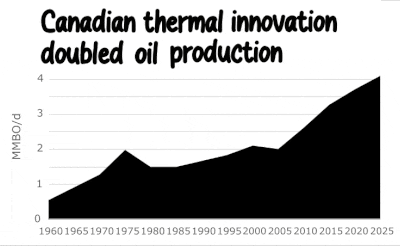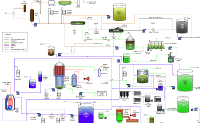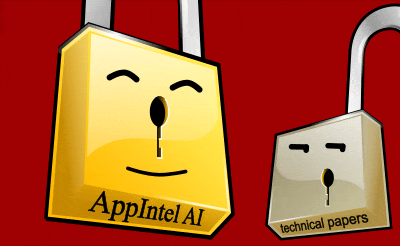4 ways to be smarter in an age of information overload
Stay relevant by finding relevant information
 We live in an age where information is everywhere. How do you make sense of so much information?
We live in an age where information is everywhere. How do you make sense of so much information?
Every day more people add photos, movies and text to social media sites. In 2008, Google announced the number of pages on the web was over 1 trillion.
Even the amount of technical information in our industry is huge. For example, SPE papers number over 167 thousand. And there are over ten times that many AER applications.
But being smarter will help your company find great ways to improve oil production and reserves. Being smarter will help you avoid failures of others. Oil companies want to hire the smartest people they can find. Being smarter helps you keep employed.
The number of AER applications is more than ten times bigger than SPE papers. So you can find more information about successful (and failed) technical ideas implemented at a field level in AER applications than anywhere else.
How do you make sense of so much information? You need to limit your consumption to relevant information. Here's 4 ways to be smarter about our industry.
1. Alerts
No one has the time to read applications all day in hopes to get smarter. Just finding the right information in the sea of data takes too long. You need relevant information. And you need it fast.
The first way to be smarter is to get alerts about relevant information. Don't scheduling time to read every application. Instead arrange to have all new enhanced recovery schemes within 20 miles of your operation sent to you automatically. Or get an alert on all thermal experimental oil sands schemes within 50 miles of Christina Lake.
Alerts are much cheaper than having your team spend time searching the IAR daily or weekly. In fact, you can buy unlimited alerts for less than 10% of the cost of a low level technician.
2. Watches
The second way to be smart: When you find a new application submitted, set up an automatic watch on it. Get an email every time there's a change in a new application while its being processed at the regulator. Get an email every time there's a new request for information. Get an email when there's a new document uploaded.
3. Search
The third way to be smart is to search for the information you need using full text search rather than by browsing. Search through historic application documents for 'non condensable gas injection' or 'asp in the mannville'.
When the web was young, you could only find information on it by following links on the 'front page' of AOL or another internet service provider. When we discovered Yahoo! someone called it the table of contents of the web. Google and others followed quickly with full text search to allow you to search for relevant information using a few key words.
4. Mapping of others
Fourth, seeing the mapping of others in an area of your interest helps you quickly get up to speed. Whether you are exploring, infilling, or acquiring, seeing others' interpretations helps you focus quickly and improves your confidence in presentation.
Like one of our subscribers, imagine you found the mapping over a play where a land sale is proposed. You could use the mapping to understand the play quickly and the point of view of the person who posted the land. If you like the play, you can win at the land sale.
And one bonus way to be smart
To be generous, we've included one bonus way to be smart in an age of information overload. Instead of waiting for weeks, you can get application information on demand. Applications you need can be delivered to you in moments rather than months. You don't lose your focus, nor your critical path.
AppIntel. Helps you find what you need. Fast.
Tags: AppIntel advantage
26 Jul 2016

Experimental Propane Solvent co-injection in thermal
Continuing Canadian thermal innovation doubled oil production

Measuring the rate of oil and gas technology growth
Energy transition inside the oil industry

The rise of water recycle
Join or perish

AppIntel AI hit alerts
Ignite your insight

Blowdown and NCG injection
SIRs often reveal more than submissions

AppIntel AI contains much more than technical papers
More current. More coverage. More detail. More trusted.

New flood to double reserves for heavy oil pool
The age of water floods is not over

Flood repatterning
Extended life support

AI makes opportunity more accessible than conferences
Which sources of technical information do you trust?




 Calgary, Alberta, Canada
Calgary, Alberta, Canada
 Share
Share